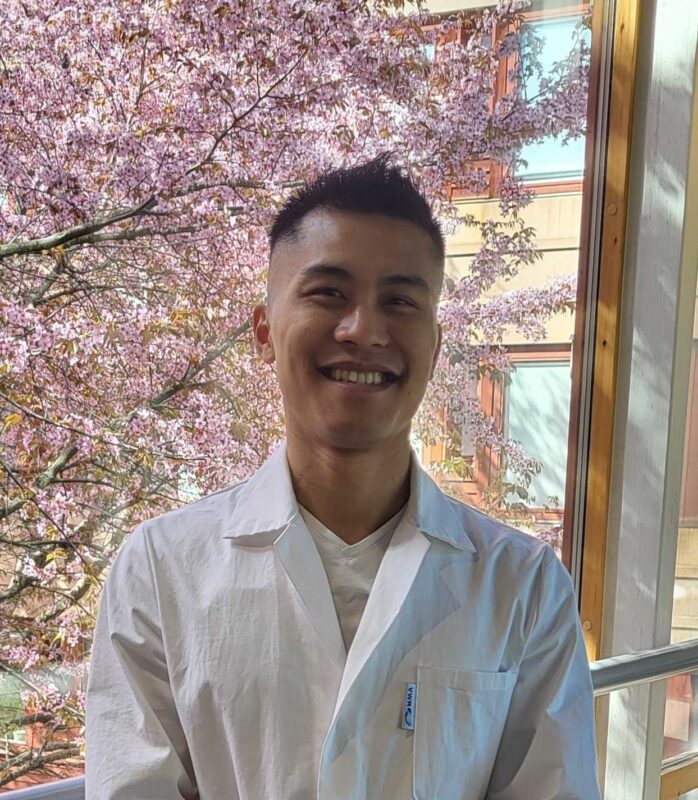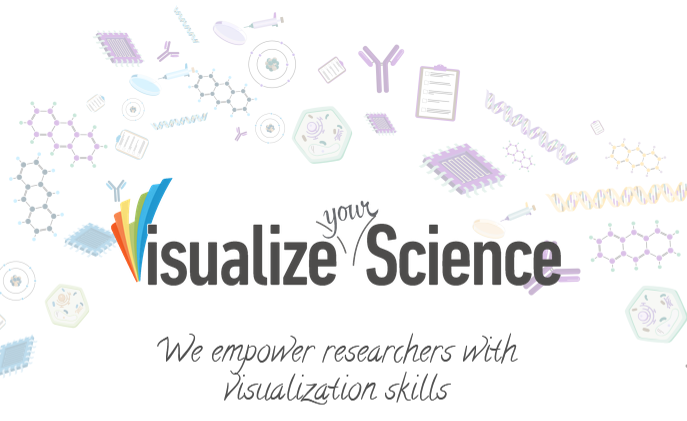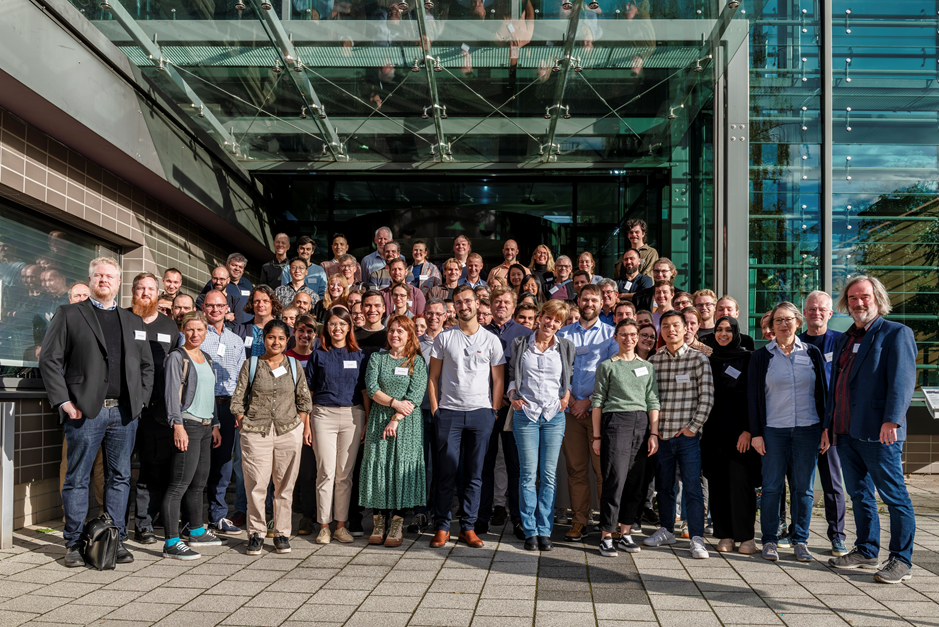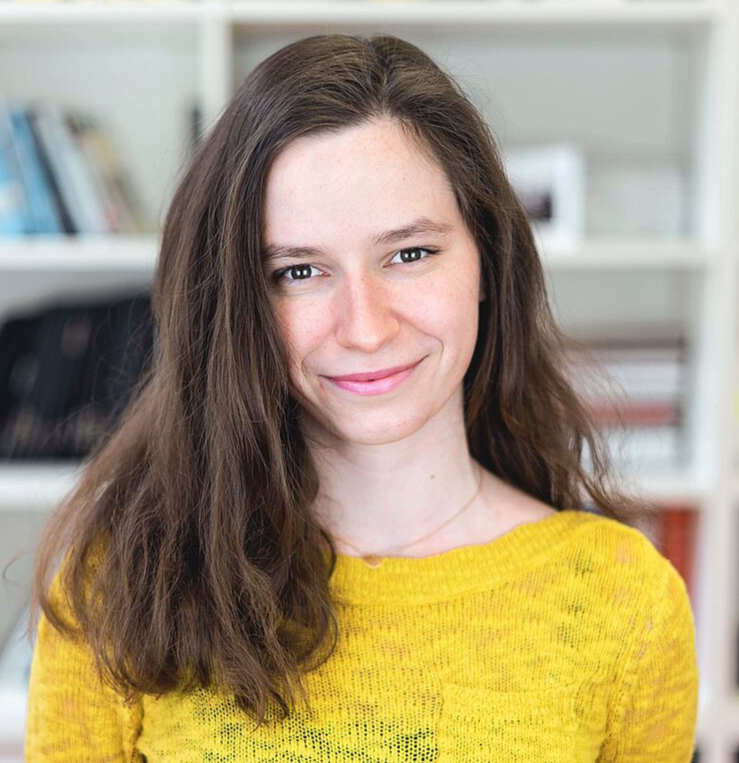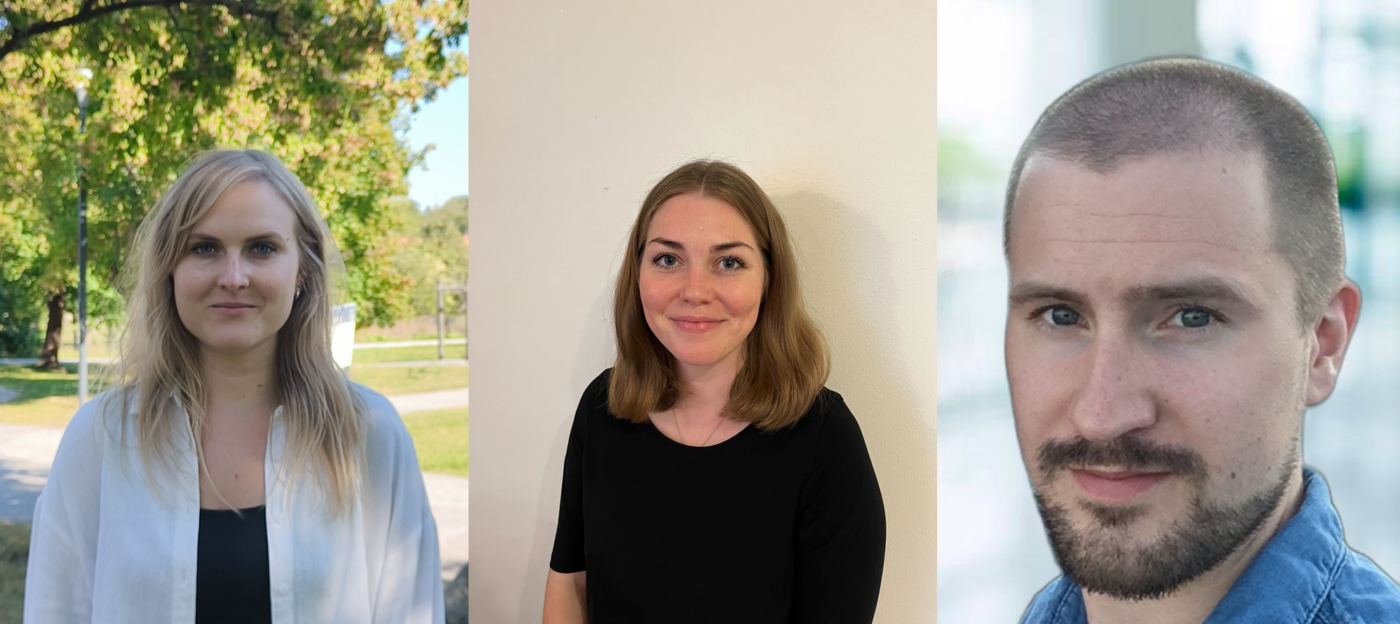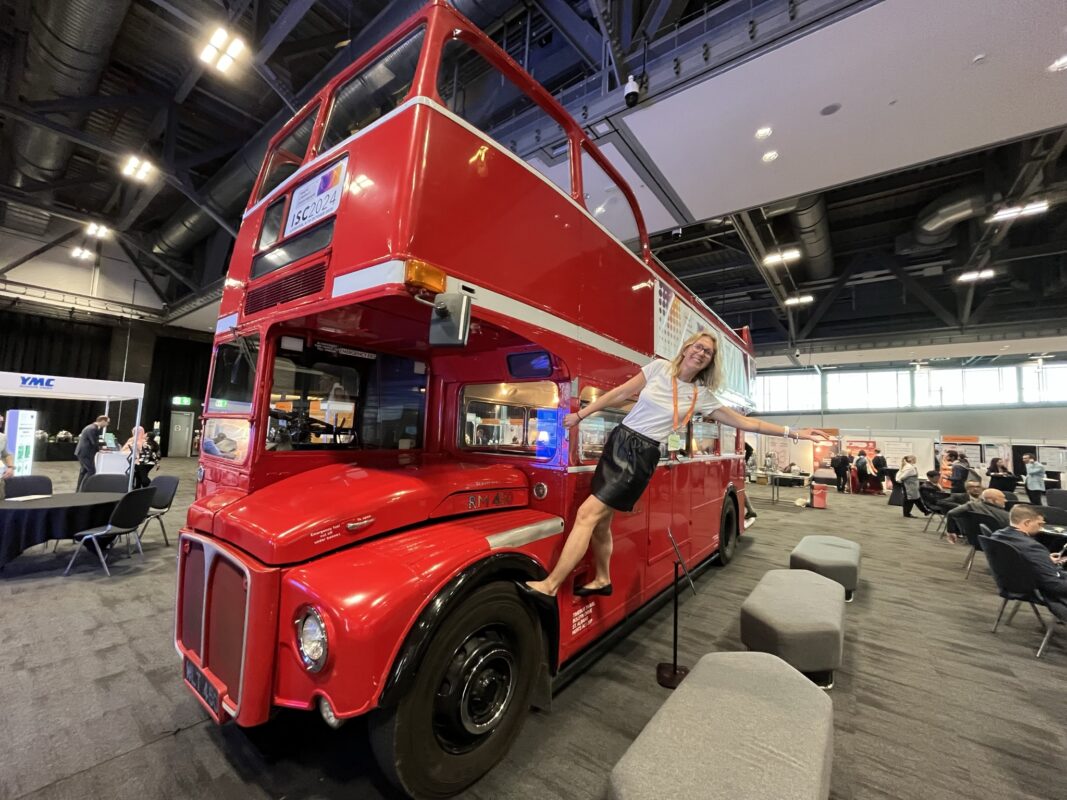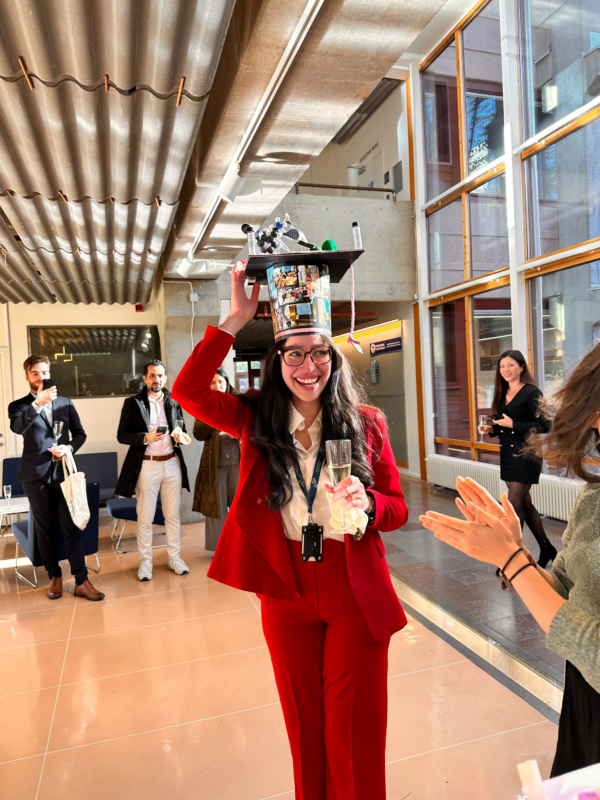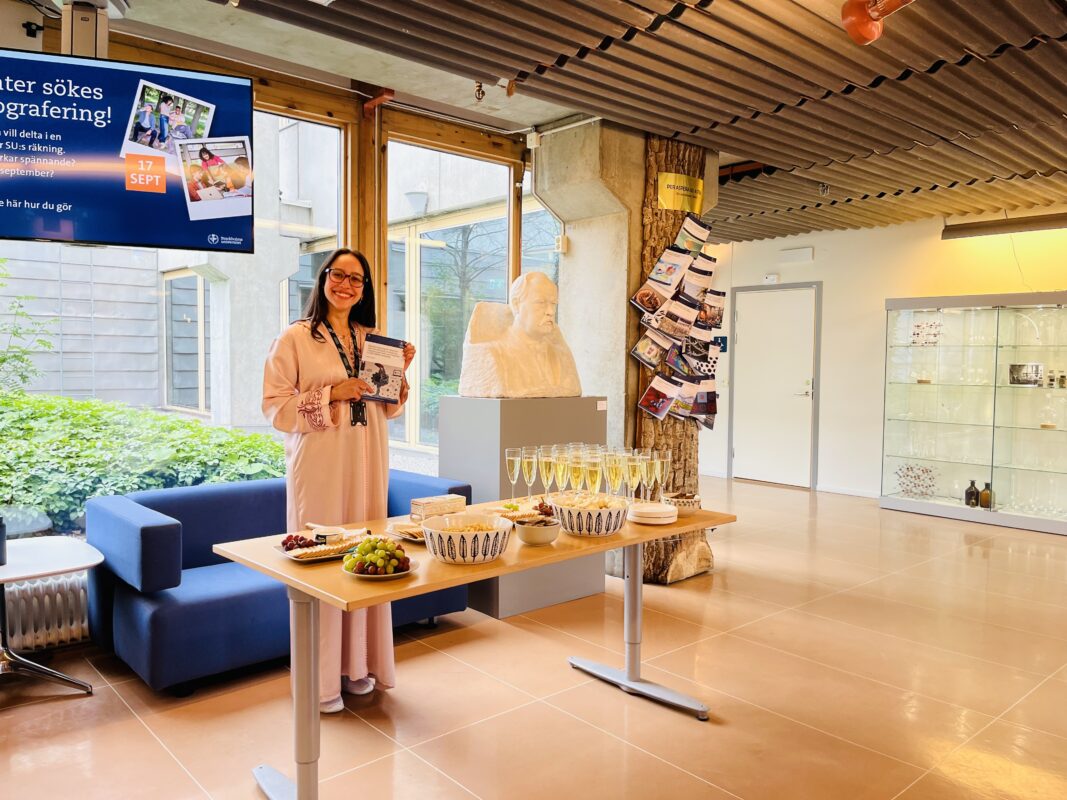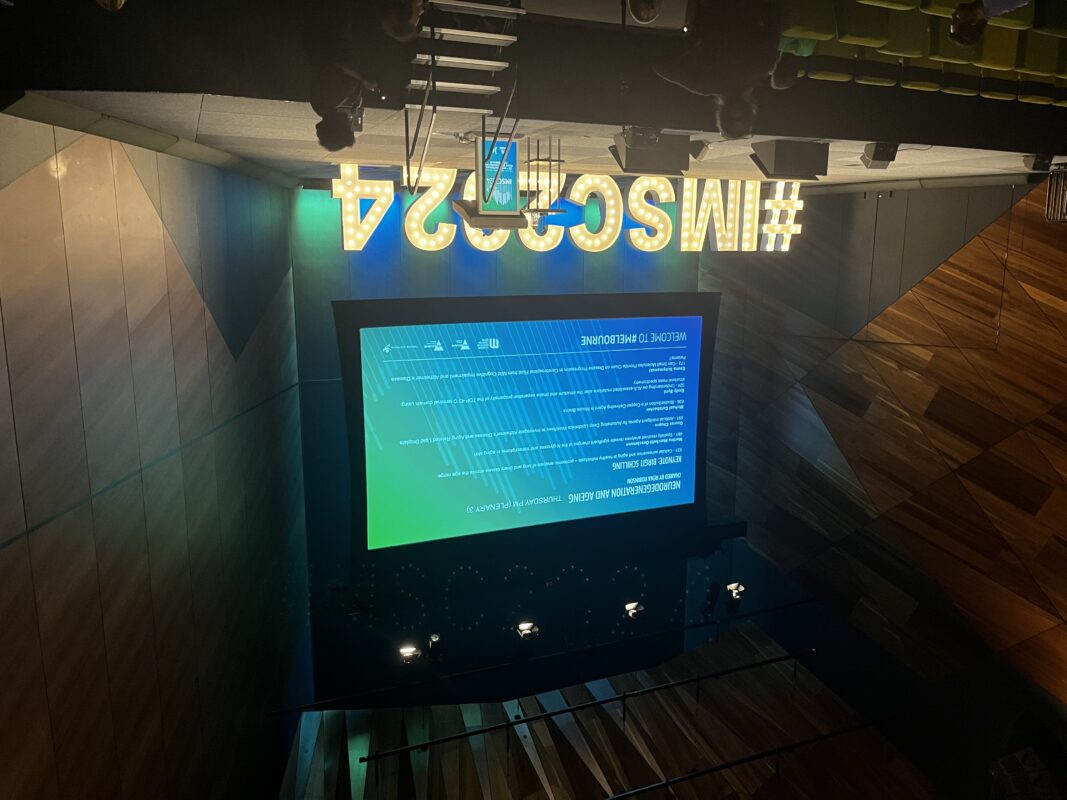We are very happy to welcome Anton Wällstedt and Kanthee Prathan (shown in the picture) who will be doing their BSc theses in our group this semester. Anton’s project revolves around chemicals that can potentially leach from food packaging to the food. More precisely, he will investigate how well MS2Quant can predict the ionization efficiency, […]
Last Wednesday, on the 11th of December, Louise and Wei-Chieh (Harry) had their PhD half-time seminar presentations. The aim of the half-time seminar is to give an overview of the already done work but also to discuss the research planned for the second part of their PhD studies. Louise’s presentation was titled “Quantification Approaches for […]
November 15, 2024 Copenhagen To conclude their course and earn their certificates, Harry and Yvonne traveled to Copenhagen to participate in a mini-conference organized by the Visualize Your Science framework. The event focused on the art of visual storytelling, exploring effective ways to communicate research visually, and offered constructive feedback on scientific posters presented […]
NORMAN Workshop on Artificial Intelligence (AI) for environmental monitoring, assessment and prioritisation of chemicals and their mixtures Leipzig, Germany: 21.-22.10.2024 Last week, Anneli, Harry, Henrik, Ida, Louise and Yvonne attended an AI workshop hosted by the Norman network at the Helmholtz Centre for Environmental Research in Leipzig. On the first day, researchers presented their […]
We’re happy to have Lisa join us for a two-month research stay, running until mid-December! With the support of Anneli, Harry, Helen, and Louise, Lisa will be diving into an exciting project: setting up novel, fully automated strategies for selecting surrogate internal standards. Lisa is currently pursuing her PhD at the University of Vienna in […]
New term, new people. Welcome Eliise, Iris, and Simon to the team! Eliise is from Estonia and will be doing her postdoc with us. Her project will focus on the analysis of lignin, a by-product of the paper industry that can be used for the production of novel biomaterials. The project combines the development of […]
This week the 34th International Symposium on Chromatography (ISC 2024) took place in Liverpool. Anneli and Gordian went to check it out and share our most recent work on chromatography and beyond. Liverpool treated the researchers in chromatography with a nice, sometimes even sunny, weather and a fantastic gala dinner in the world fifth largest cathedrals. […]
Today, on the 4th of October 2024, Amina Souihi successfully defended her PhD thesis. The opponent was Michael Witting (TU München and Helmholtz Zentrum München) and the committee members were Åsa Emmer (KTH), Giorgio Tomasi (University of Copenhagen), and Magnus Åberg (Perkin Elmer). The discussion reveled around retention time predictions, complementarity of different NTS methods, and […]
Today Amina Souihi, the first graduating PhD student from the Kruvelab at Stockholm University, nailed her thesis alongside a practice presentation in the department. In the last five years, Amina has been working on developing machine learning methods for improving the detection and identification of chemicals with liquid chromatography high-resolution mass spectrometry in non-target screening. […]
Recently, I had the privilege to return to my home-city of Melbourne, Australia to attend the 2024 International Mass Spectrometry Conference. My session was chaired by Prof Emma Schymanski of the University of Luxembourg, and the keynote speaker was Prof Kevin Thomas of the University of Queensland. Kevin started the session with some brilliant take […]


